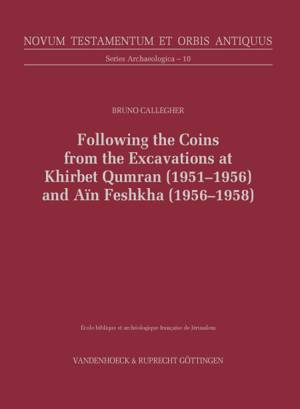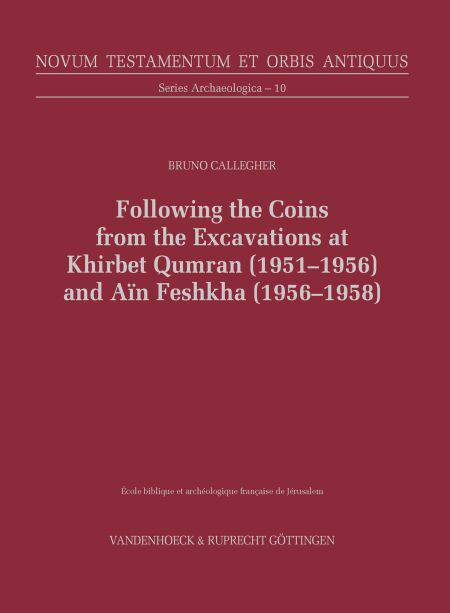
Bedankt voor het vertrouwen het afgelopen jaar! Om jou te bedanken bieden we GRATIS verzending (in België) aan op alles gedurende de hele maand januari.
- Afhalen na 1 uur in een winkel met voorraad
- In januari gratis thuislevering in België
- Ruim aanbod met 7 miljoen producten
Bedankt voor het vertrouwen het afgelopen jaar! Om jou te bedanken bieden we GRATIS verzending (in België) aan op alles gedurende de hele maand januari.
- Afhalen na 1 uur in een winkel met voorraad
- In januari gratis thuislevering in België
- Ruim aanbod met 7 miljoen producten
Zoeken
Following the Coins from the Excavations at Khirbet Qumran (1951–1956) and Aïn Feshkha (1956–1958) E-BOOK
Bruno Callegher
€ 300,00
+ 300 punten
Omschrijving
The Qumran coins (hoard and single finds) are worthy of a novel. They were perfectly examined by H. Seyrig and A. Spijkerman, then the popular conviction spread that the coins had been lost. In fact, they were always kept where they had been classified. Now they are finally published and provide the possibility to suggest that Qumran was a very open centre for trade and transactions, at least from finally the end of the second century BC until the destruction of the site in 70/72 CE.
This documentation provides a new reasoning on effective data – not on assumptions.
This documentation provides a new reasoning on effective data – not on assumptions.
Specificaties
Betrokkenen
- Auteur(s):
- Uitgeverij:
Inhoud
- Aantal bladzijden:
- 346
- Taal:
- Engels
- Reeks:
Eigenschappen
- Productcode (EAN):
- 9783647501949
- Verschijningsdatum:
- 12/11/2023
- Uitvoering:
- E-book
- Formaat:

Alleen bij Standaard Boekhandel
+ 300 punten op je klantenkaart van Standaard Boekhandel
Beoordelingen
We publiceren alleen reviews die voldoen aan de voorwaarden voor reviews. Bekijk onze voorwaarden voor reviews.









